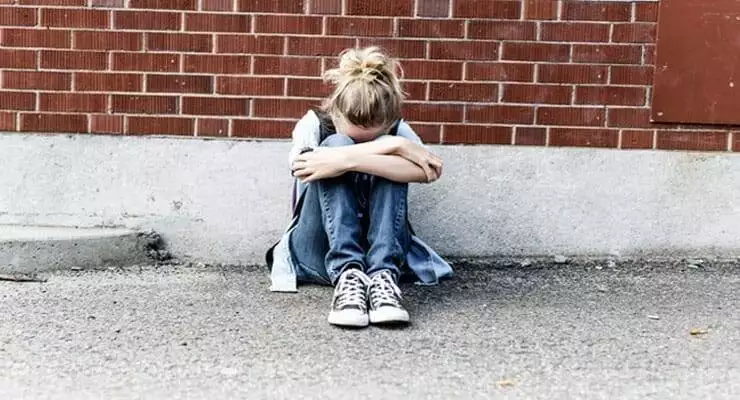When I walked in to my daughter attempting suicide due to extreme bullying, I was horrified and heartbroken. Most of all, I was surprised and felt guilty that I had missed that anything of this magnitude was happening in her life. Bullying has been around forever, heck, I was bullied as a kid, but bullying has changed so much. Social Media has made escaping bullying nearly impossible. If you something different is going on, there are two questions to ask yourself: Is my child being bullied, and how do I help?
What, Exactly, is Bullying?
Bullying is a repeated, unwanted and intentionally harmful behavior that is directed at a targeted individual and involves real or a perceived power imbalance. There are four types of bullying:
- Physical Bullying. Physical contact and gestures that are purposely intended to harm or scare such as, hitting, kicking, punching, or tripping another person.
- Verbal Bullying. Verbal comments that are intended to make another person feel bad such as teasing, name calling, taunting and threatening.
- Cyberbullying. Sending, posting, or sharing content about someone else through digital devices that is intended to cause embarrassment or humiliation.
- Relational Bullying. Purposely trying to make another person feel bad by excluding, gossiping and spreading rumors.
Recognizing the Signs of Bullying
Children who are bullied often display the following signs and behavioral changes before they tell you or another adult:
- A strong dislike for school
- A change in friends and social behavior
- Repeated physical injuries
- A change in eating and/or sleeping
- Isolating in room and talking less
- A decline in grades and academic performance
Not every child that has these behaviors is being bullied, but if yours is, you should pay attention. My daughter had most of these but I disregarded them as her just becoming a moody teenager. That lack of knowledge could have cost me my daughter.
My Child IS being bullied. Now What?
I know you want to rush in and take care if it, and sometimes you will have to. There is another way we’ve used in our family that helped my daughter deal with her bullies, and taught my son how to deal with bullies, as well. It helped me help themselves, as well as staying in the loop.
I read a book called The Empowered Child by Danielle Matthew that helped us make a plan to deal with bullies, but most important, how to help my CHILDREN take control of the situation. I think one of the worst parts of bullying is feeling so helpless about what is happening to you. Letting them be involved in the resolution of the bullying is key in giving them back that power.
- Empathy. Be empathetic by asking (not telling) your child how he feels. Listen without judgement as you ask your child questions such as “I noticed that you haven’t been acting like your usual self. Is there someone who has been doing or saying mean things to you?”, and “How did you feel when that happened?” Of course, my daughter said to me, How did you THINK I felt, Mom, and I had to ask her to tell me. Over tears, she did, and she was able to open up and not only tell me how she felt, (not feeling so alone with those feelings) but we were able to talk about a way to possibly make it stop.
- Empowerment. Children that have been bullied often feel helpless and powerless. You can empower your child by asking her what she’d like to do about the bullying. It is important for children and teens to feel empowered to handle issues themselves. Guide and encourage as your child with making a plan- Ask questions such as, “We have a school meeting coming up with your principal. How do you feel about this, and would you like to come? After your child has created and shared his plan, practice it! My son came up with a plan on how to deal with bullies on the school bus that was completely different than what I would have done, but it worked for him, and did stop the behaviors!
- Engagement. After you have a plan in place, it’s important to regularly check-in with your child to find out how your child is feeling and if the bullying has stopped. If it hasn’t, or gotten worse, it’s important to bring this information to the school. You must be ready to step in if their safety or well being is at risk. Follow up with with school officials to get the issue resolved (if the bully attends the same school) and keep following up until the bullying is fully resolved. If you have a school meeting scheduled, ask your child questions like “What are some important things that you want mentioned in the school meeting? What would you feel comfortable saying?” Keep them involved, but be ready to take over if needed. I think having my daughter in the final school meeting really made an impact on the principal and the other parents, and helped move along a resolution.
Showing empathy, empowering your child to take steps to change the situation, and engaging with your child and the appropriate authorities are the great ways to start addressing bullying. Of course, if the bullying doesn’t stop, or your child’s really struggling, it is important to find professional help to address these issues and develop strategies to handle the bullying. Most of all, showing your child that they do still have power and can help themselves but you have her back if needed will make great strides in helping your child feel less helpless and in control again.





